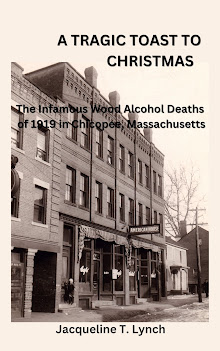Tuesday, December 25, 2012
Peace Be With You
Park Street Church, Boston, in warmer days.
A very Merry Christmas to those who celebrate it, and a
Happy New Year to all. In appreciation
for the pleasure of your company this past year, I’m offering my eBook
collection of essays from this blog, “Classic Films and the AmericanConscience” here from Amazon for free Christmas Day through the 27th. This will be the last time this book is
offered free; in the new year it will be available not only through Amazon but
also through Barnes & Noble’s Nook, Apple, Sony, Diesel, Kobo, and
Smashwords.
I’m going to take a couple weeks off to tend to some other
business, but I’ll be back in late January. I hope you can join me.
This is going to be a difficult Christmas for many who have
suffered tragedy and loss this year; and for the people of Newtown,
Connecticut, December will never ever be the same.
A few weeks ago on my "Another Old Movie Blog", I blogged about “Cry Havoc” a movie which
takes place in the Philippines during World War II. I was reminded by many images through that
film of my father.
My father entered the Army in December 1942 and missed
Christmas at home that year. He had a
wife and a new baby. He was sent to the
Pacific Theater of operations and island-hopped with all the rest of the gang,
and Christmas of 1943 passed by, and then Christmas 1944.
There were no telephone calls home, no emails, only letters
and tiny “V-Mail” notes that took weeks to get home. He sent Christmas messages home in early
November, hoping they would make it in time.
In the summer of 1945 he was in the Philippines, and endured
horrific experiences he did not like to talk much about. He also got malaria, which stayed in his
bloodstream so that he continued to suffer a bout of it after he got home. There were other injuries and wounds, but
good news came when the Japanese surrendered, which was totally unexpected for
regular GIs like my dad, who were convinced they’d be spending 1946, 1947, and
1948 still fighting the war.
Now that peace was declared, his only enemy was time. He wanted to get back home for Christmas
1945.
He had earned enough points to be rotated home. Several weeks on a troop ship. He passed under the Golden Gate Bridge in San
Francisco, which was the last thing he saw of the US when he left. Now that he saw it again, he really believed
he was home.
A few days being processed, and more days on the train
because he lived on the other side of the continent. After being in the jungle for three years,
winter in the US was a shock, and his first telegram home contains the line, “COLD
COUNTRY.”
Leave it to a New Englander to squeeze in a comment about
the weather in his first telegram to his wife.
Finally he arrived at Ft. Devens in the eastern part of
Massachusetts, and a few more days of the mustering out process. Medical exam, paperwork, ribbons and
commendations, a clean uniform to home in, and finally a “ruptured duck” lapel
pin to wear.
But he lived in the western part of the state, so it was
another train ride. He sat in the
station in Boston, waiting for his connecting train, and ate at a lunch
counter. The man behind the counter
gestured to his ribbons and said, “You’re money’s no good here, son. You’ve done enough,” and wouldn’t let him
pay.
Decades later, my father still felt grateful, humbled, and
embarrassed by the moment.
When the train pulled into the station, his wife and
daughter were there on the platform. His
daughter wasn’t a baby anymore, but a little kid running around. She had been told many times that the man in
the portrait photo at home in the uniform was Daddy. She got mixed up and thought anybody in
uniform was Daddy and had to be told over and over again that, no, that’s not
Daddy.
Finally her mother points to a tall, handsome guy stepping
off the train and says, “There’s your Daddy.”
I’m thinking my sister, with all the wisdom of a small child thought,
“Yeah, right. Tell me another one. I’m not falling for that again.”
It was January 1946.
He failed to get home for Christmas.
In his last telegram he wrote “SORRY ABOUT THE
HOLIDAYS.” A real man sometimes
apologizes for what isn’t even his fault.
My father was in his early 20s when he left. He had fired weapons in war, but the
experience did not make a man of him. He
was man because he had a family and took responsibility for them. Responsibility is what made him a man, and he
knew it. He was good marksman, but he
looked down on people who needed guns to make them feel manly, or make them
feel safe. It was a crutch for cowards,
he thought.
I was tempted to use as a graphic and ad here published by
an assault weapons manufacturer that inferred that manhood would be achieved by
ownership of their product. However, I
refuse to print any words or images on this blog that are obscene. That image and the message behind it are
obscene.
My parents lost four Christmases, and the years ahead would
not be easy. As anybody knows, happy
endings are only for movies. But they
accepted what they could not change, and tried to be resilient, and change what
they could.
The people of Newtown must accept what they cannot change.
The rest of us must change what we can.
Now.
Peace be with you.
Posted by
Jacqueline T. Lynch
at
7:46 AM
![]()
Labels: houses of worship
Subscribe to:
Post Comments (Atom)













No comments:
Post a Comment